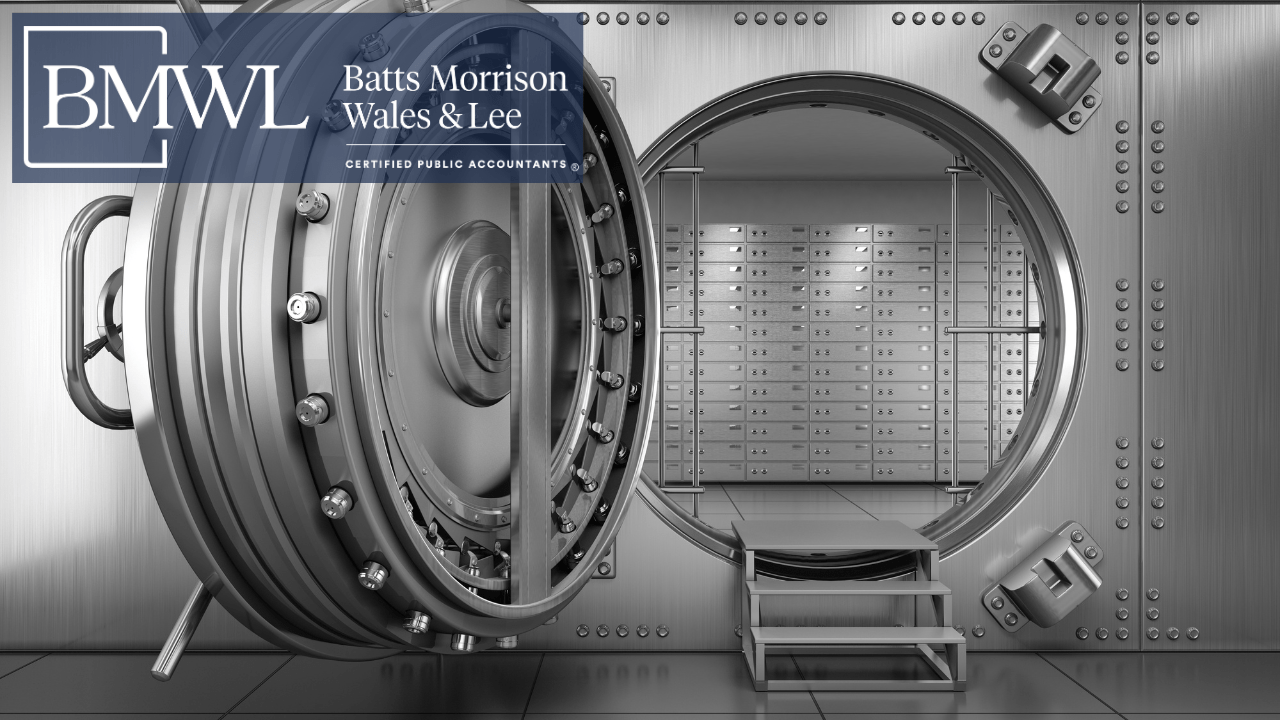
Ensure that your church’s bank deposits are safe…no matter which bank you use!
By Mike Batts, CPA
Remote work is still a strong force after the COVID-19 pandemic, with many businesses allowing their employees to work remotely. Remote work’s lingering reality has significantly reduced the demand for commercial office and business space. The resulting increase in the vacancy rates for commercial rental space is affecting the ability of many landlords to make their mortgage payments. It is also reducing the value of the collateral securing those mortgages. That reality, in turn, exposes commercial lenders, many of which are banks, to a higher risk of loss in their loan portfolios.
Why does this matter to churches? Because this combination of factors elevates the risk that banks could fail.
What should church leaders do in response to this risk?
I used to say that the best way to monitor your bank’s financial health is to monitor your bank’s financial ratings by one or more reputable companies that rate banks. But my beliefs about the reliability and usefulness of bank financial ratings changed after Silicon Valley Bank (SVB) was taken over by the FDIC on March 10, 2023, at a time when one major ratings agency had an “A” rating outstanding for the bank, and another had a “B” rating outstanding. The SVB failure was the second-largest bank failure in US history, according to The Wall Street Journal (WSJ). The WSJ published an article on March 10, 2023 (the day the FDIC took control of the bank), with a truly remarkable two-sentence paragraph about the SVB failure: “‘The bank was in sound financial condition on Wednesday,’ the regulator said. A day later, it was insolvent.”
Accordingly, my advice to church leaders today about bank health is to ensure that your church’s bank deposits are safe…no matter which bank you use.
Given the practical limitations on knowing whether any bank is safe and sound, what can church leaders do to ensure their church’s bank cash deposits are safe? Some suggest that perhaps the only safe banks are the very largest banks in the country…those that the regulators deem “too big to fail.” If all depositors took that position, smaller local and regional banks would be wiped out, and local banking relationships could be more difficult to maintain.
Another possibility is to spread your church’s bank deposits among multiple banks to have more of your balances covered by FDIC insurance. But, depending on the size of your church’s deposit balances, it may not be practical to try to spread deposits among multiple banks, keeping balances below the FDIC coverage cap of $250,000 per depositor.
It is generally true that the larger the bank, the more likely federal regulators would deem it too big to fail. So, if your church wants to bank with a big bank, that could be an appropriate strategy. Bankrate offers a list of the 15 largest banks in the US. Keep in mind, however, that one of the banks that failed in 2023 was the 14th largest bank in the country at the time it failed.
Is there a way to reduce the risk associated with your large bank account balances, even with a local or regional bank?
Yes. Many local and regional banks participate in programs offered by IntraFi Network, LLC (IntraFi).
Banks participating in the IntraFi network allow customers to maintain a relationship with one bank and have FDIC insurance coverage for deposits well above the standard FDIC coverage cap of $250,000 per depositor per bank. The network allows for the larger deposits to be spread among multiple banks in the network in amounts within the $250,000 FDIC cap while maintaining one point of contact with one participating bank. IntraFi offers programs for demand deposit (checking) accounts, money market accounts, and CDs. Participation in the IntraFi program with a participating bank may carry a fee. The fee may apply as a reduction in the interest rate you earn on your deposit balances.
BMWL’s National Nonprofit Conference — BMWL
If you’re seeking ways to help your church maintain awareness of topics like this, check out the BMWL National Nonprofit Conference on August 27, 2024. Our Conference’s main purpose is to help church and other nonprofit leaders stay informed about new and relevant developments that could significantly impact their organizations. To learn more, visit NonprofitConference.com.
Mike Batts, CPA is the managing partner of Batts Morrison Wales & Lee, a national CPA firm dedicated exclusively to serving nonprofit organizations and their affiliates across the United States. Mike has more than 30 years of experience serving nonprofit organizations in a variety of ways. He has served on and chaired the boards of nonprofit organizations — both nationally and locally. He advises nonprofit organizations on matters related to board governance, financial oversight, tax compliance and strategy, risk management, corporate structure, international activities, and other related topics. Mike has authored several books and has actively engaged in nonprofit legislative matters at the federal and state levels. Mike leads BMWL’s national headquarters office in Orlando as well as its Dallas office. To contact Mike and the BMWL team, reach out to Info@NonprofitCPA.com.



